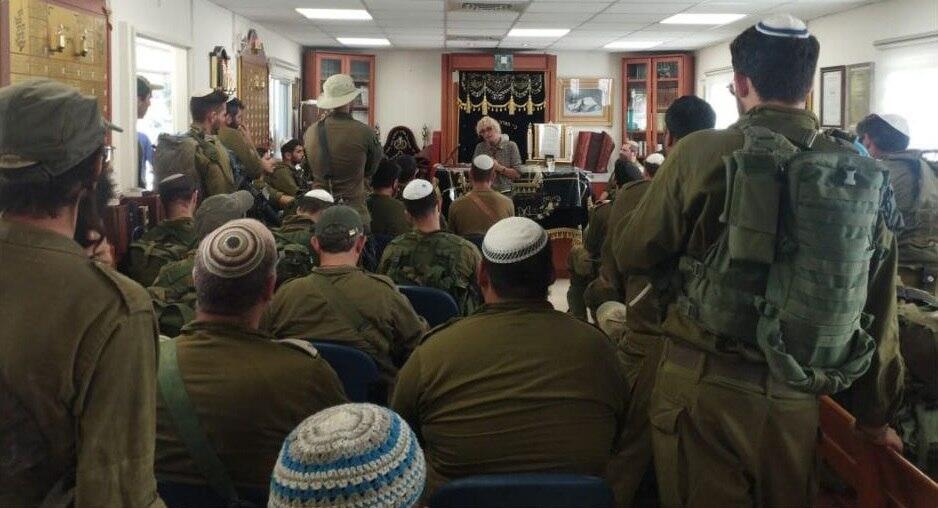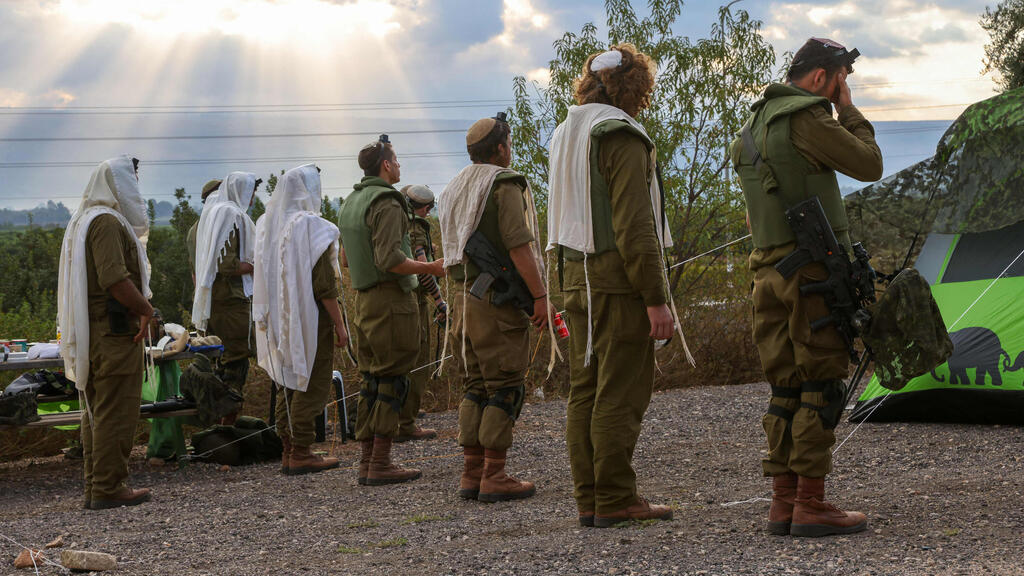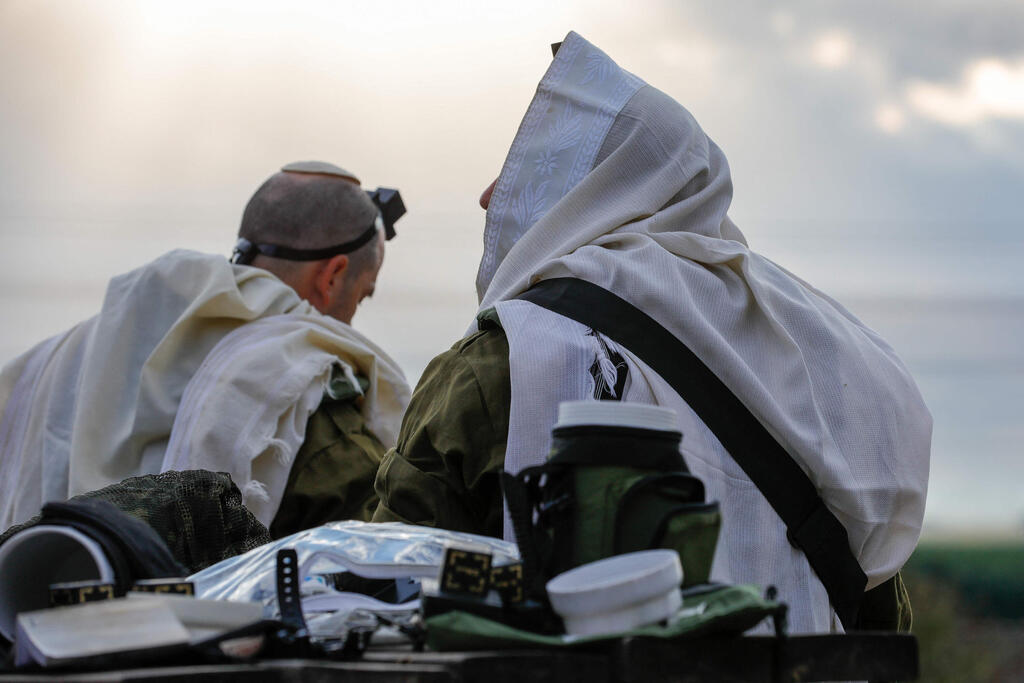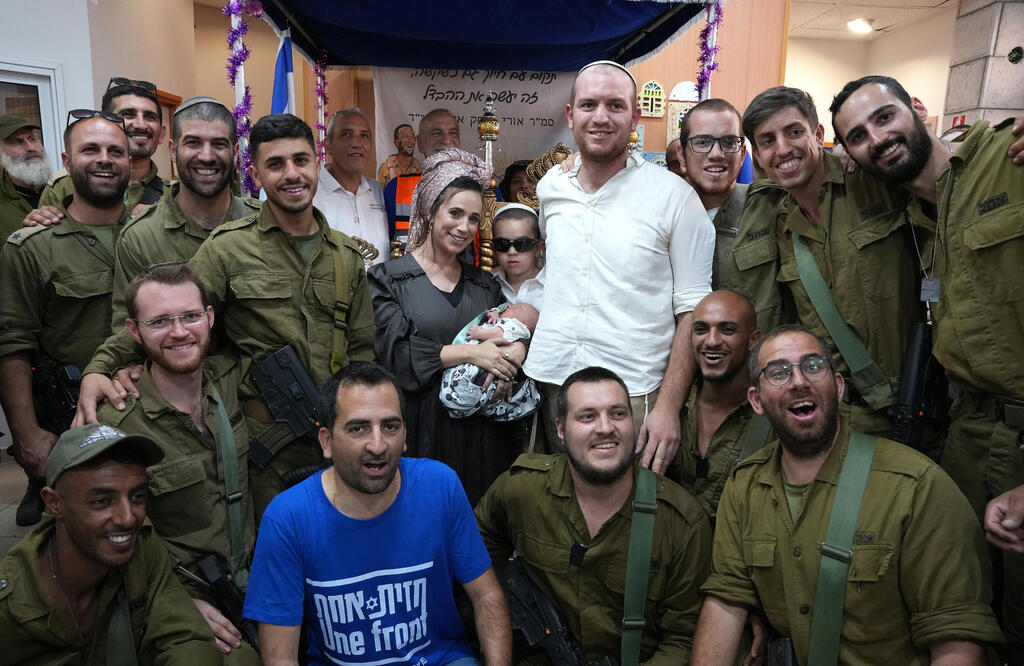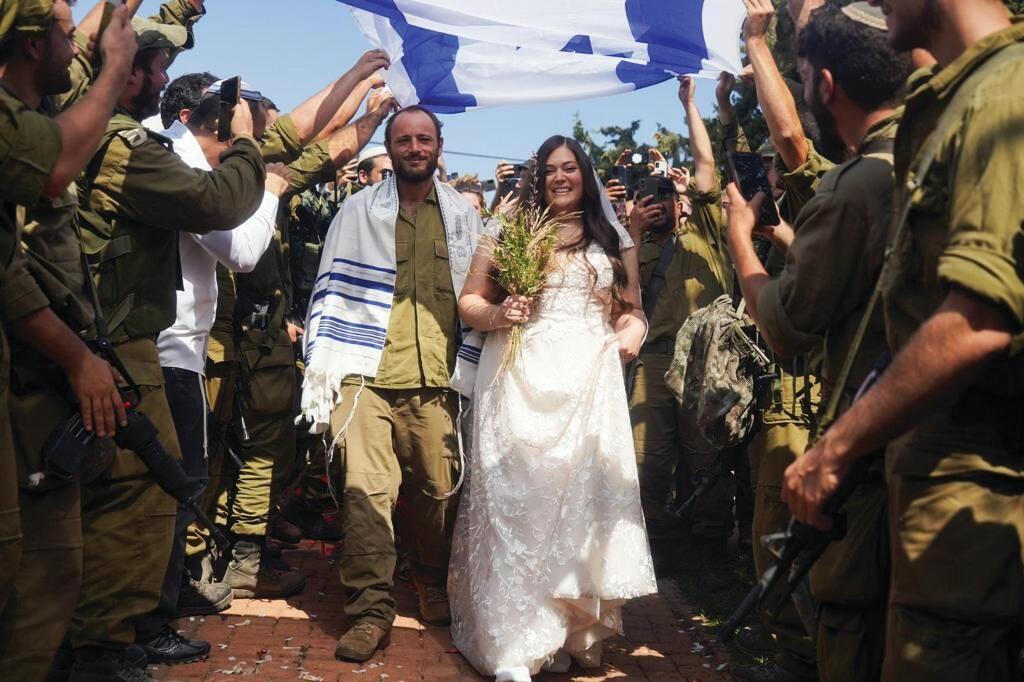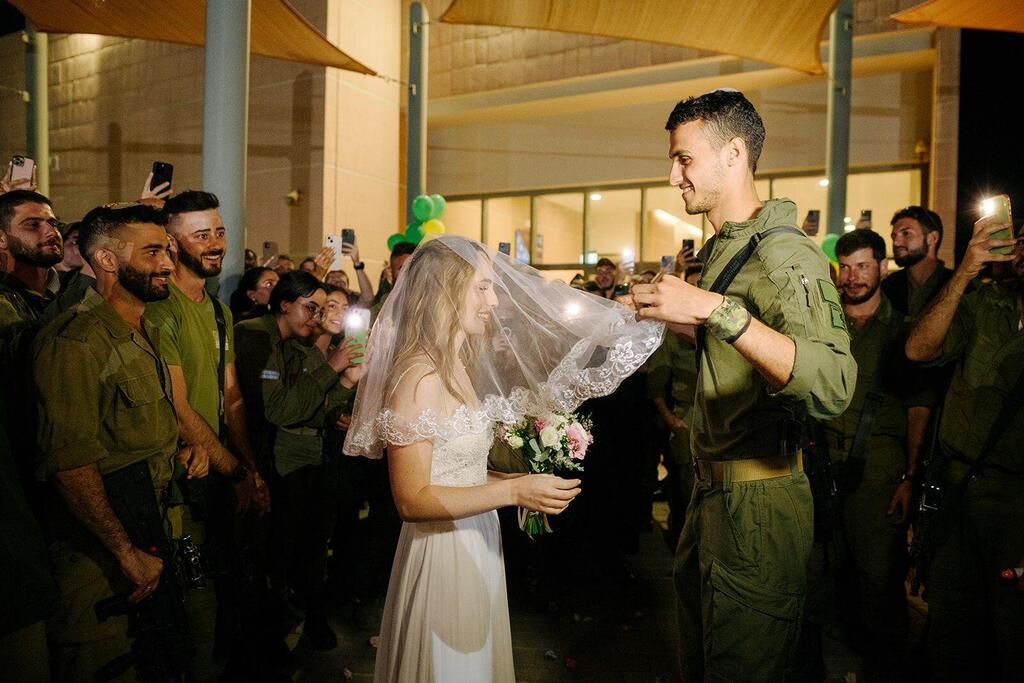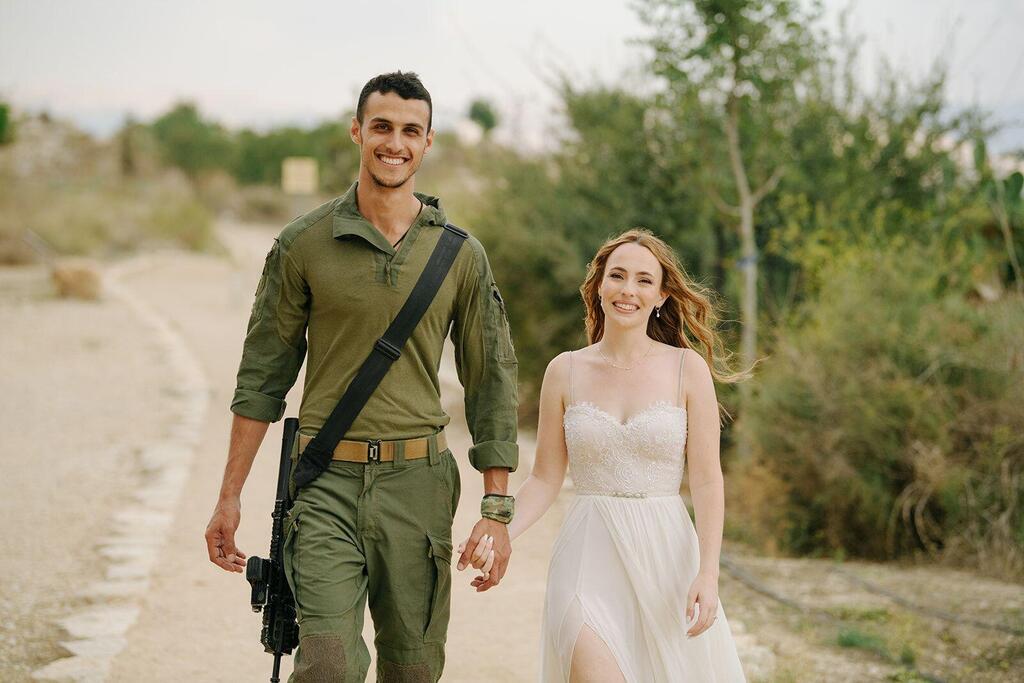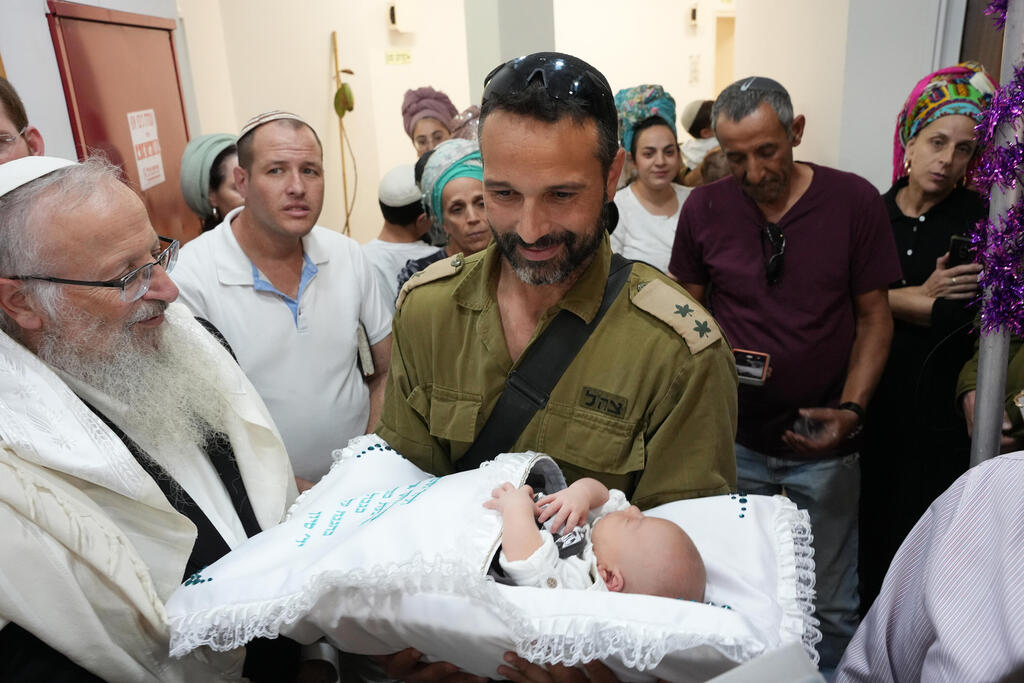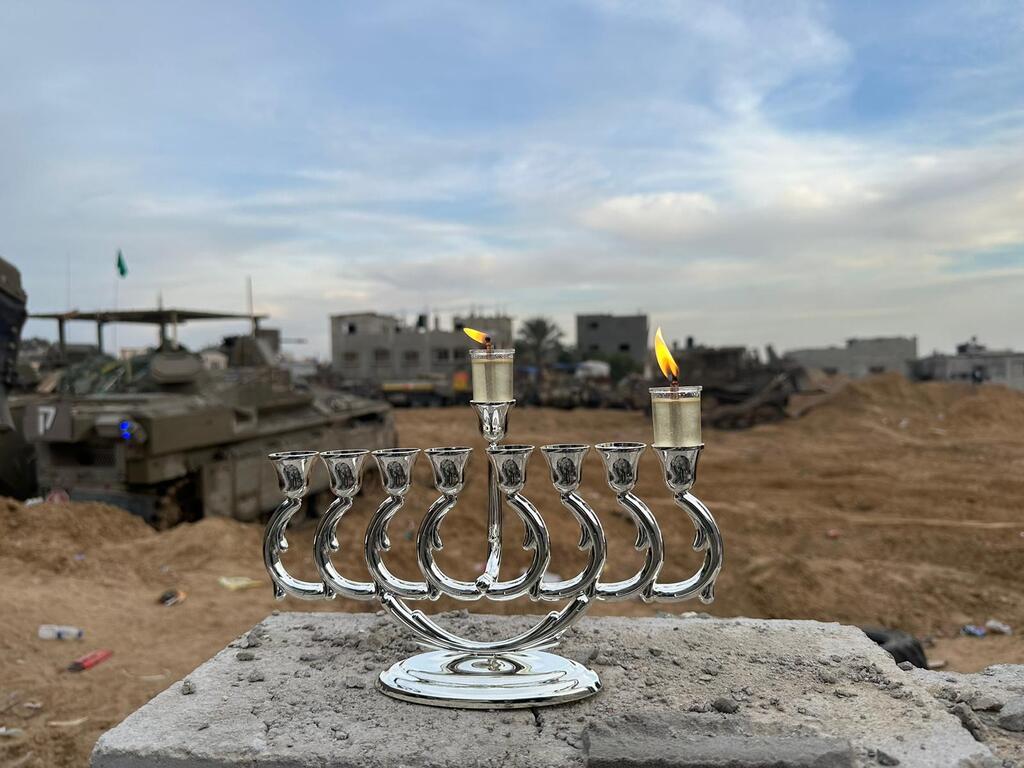Observing Shabbat in the Gaza Strip
Since the beginning of the war and particularly since the IDF’s ground operation inside the Gaza Strip, soldiers fighting in the region have repeatedly had to observe Shabbat away from home. This includes soldiers from the Golani Brigade's 12th Battalion, who conducted a Friday evening Kiddush in Khan Younis, as well as soldiers from the 5th Reserve Division who were documented welcoming Shabbat in Khuzaʽa.
Kidush in Khan Yunis by IDF soldiers
(IDF)
More stories:
The resurrected synagogue in Kibbutz Be’eri
After clearing out Kibbutz Be’eri from the Hamas terrorists who infiltrated it on October 7, IDF soldiers reached the entrance of the Ahavat Yisrael Synagogue in the kibbutz, which was locked. On the door, they found a sign that read: "Whoever wants to use [the synagogue] - please coordinate with Rachel," alongside a phone number.
One of the soldiers made a call, not knowing if she was still alive. On the other end answered Rachel Pricker, the synagogue’s founder who survived the horrible massacre. "I received a call from one of the soldiers, two days after we survived the terrible attack. He told me that there were soldiers in the kibbutz who wanted to pray and asked me if I had a key," she recounted in an interview with Ynet.
"I told him, 'Listen, my entire house is burned down, there is nothing left, and certainly no key – but you can break down the synagogue's door,' and that's what he did. People pray there all day long. This place not only hosts worshippers but has also become a meeting place for soldiers serving near the Gaza Strip."
A month after the start of the war, Pricker visited the synagogue and met with the soldiers there. Near the end of November, a Torah scroll dedication ceremony was held at the Be’eri Synagogue in memory of the paramedic Amit Mann, who was murdered on October 7.
Praying for victory and peace
Throughout the war, soldiers have been documented praying numerous times – together or individually. Pictures of a special prayer were captured by the Getty Images visual media company on December 21, showing IDF soldiers praying near Re’im, at the location where the Nova Music Festival took place on October 7.
14 View gallery
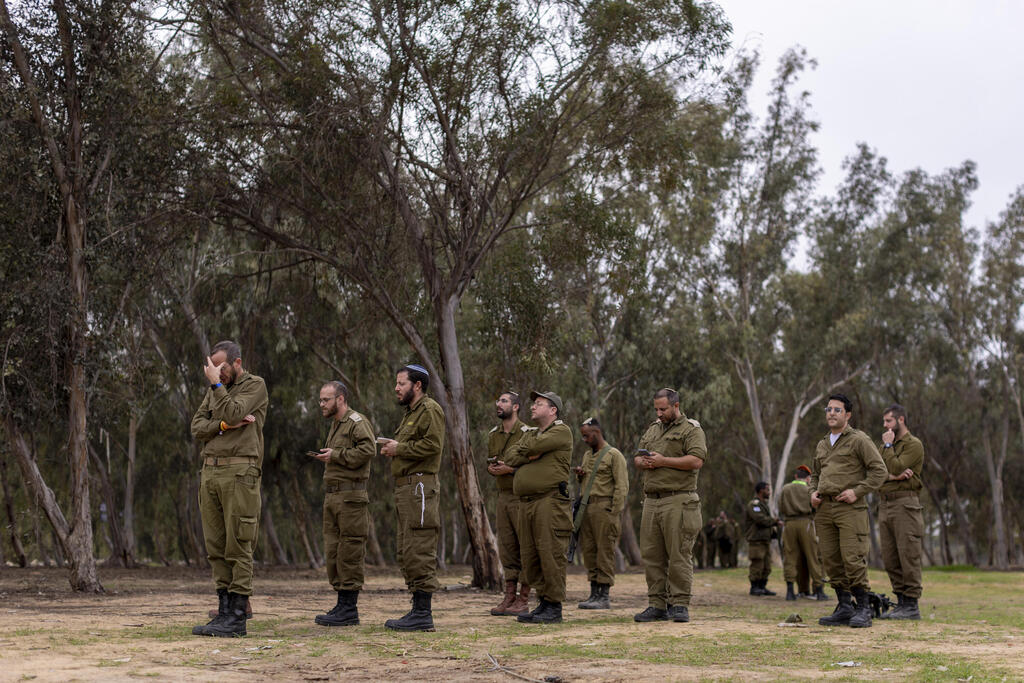

IDF soldiers praying at the site of the Nova Music Festival in December 2023
(Photo: Maja Hitij / Getty Images)
14 View gallery
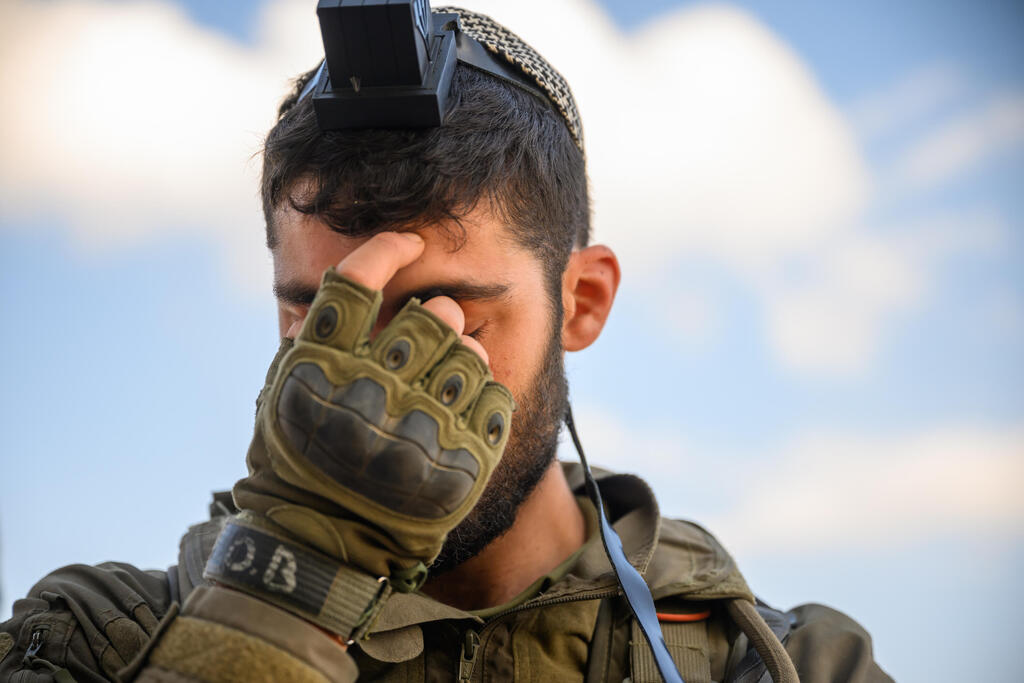

A soldier with his Tefillin next to the Gaza border
(Photo: Alexi J. Rosenfeld / Getty Images)
14 View gallery
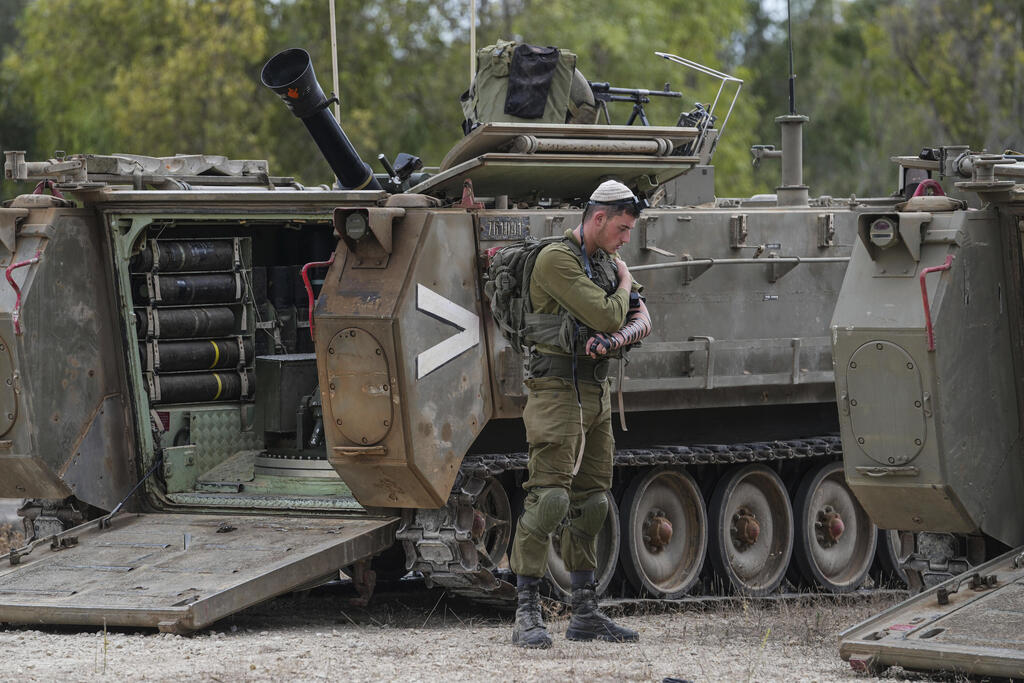

IDF soldiers praying near the southern border on October 9
(Photo: AP Photo / Tsafrir Abayov)
Ceremonies and celebrations
At the start of the war, many Jewish celebrations were observed in military gathering centers – ranging from modest weddings to circumcision ceremonies (Brit Mila). Some families missed out on these occasions due to being conscription.
For instance, David from Eli was drafted into reserve duty and had to watch his son's circumcision ceremony digitally. In a video published in October, he is seen remotely observing the event via a mobile phone and blessings his child.
David, watching his son's circumcision ceremony digitally
In another event, IDF soldiers celebrated the circumcision ceremony for the son of their fellow soldier Barak Farber. "The enemy is trying to take our lives and we, who called our baby Ivri Haim (the Hebrews live), should show him what a real life is, full of joy and light, because that is who we are. This is our people,” Farber said.
Weddings were also held for soldiers amid the war. For example, Liran Asaf and Gal Nedar got married in October in a military gathering center, with the groom wearing a military uniform and his fellow soldiers accompanying the newlyweds.
Liran Asaf and Gal Nedar's wedding
(IDF)
In a similar case, Samder Pal and Yosef Sharet got married in an IDF training base in southern Israel. As a reservist officer in the Golani Brigade, Sharet participated in fighting against terrorists on October 7.
Hanukkah in the Gaza Strip
Stories related to Hannukah, celebrated in December, about the victory of light over darkness, seemed more relevant than ever this year. Soldiers on the various fronts lit Hanukkah candles at several locations, including within the Gaza Strip.
‘If I die, I want to die as a Jew’
The war in Gaza gave rise, among other things, to a great number of IDF soldiers seeking to convert to Judaism. One of those soldiers is A., a soldier in one of the IDF’s commando units that fought within communities close to the Gaza Strip on October 7.
After the fighting in southern Israel was over, A.'s unit was sent to the northern border, where he appealed to the military court to expedite his conversion process that began over ten months earlier. "I wanted to come here today and complete my conversion because I know that I might die in the fighting, and, if that were to happen, I want to die as a Jew,” A. told the judges.
14 View gallery
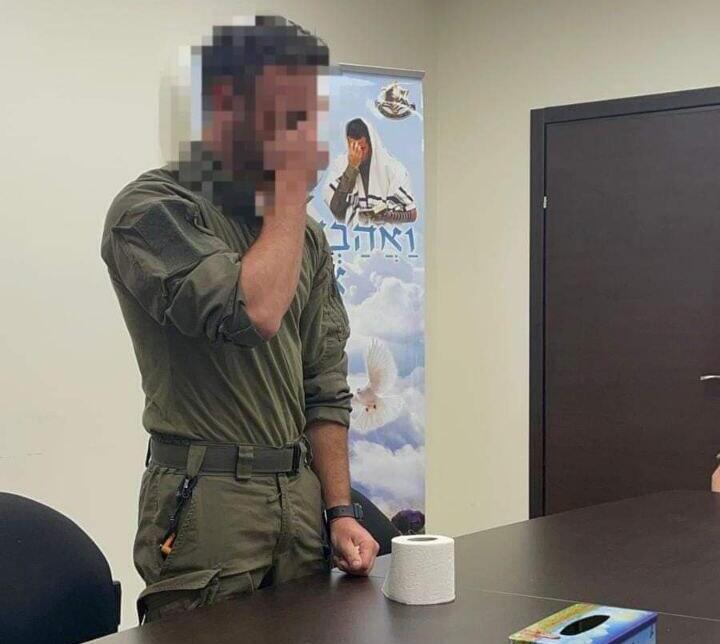

A. a soldier in one of the IDF’s commando units that fought within communities close to the Gaza Strip on October 7, converted to Judaism
After pleading his case, the judges appealed to the Military Rabbinate requesting to do what they could to assist in completing his conversion, which was approved the same day.





